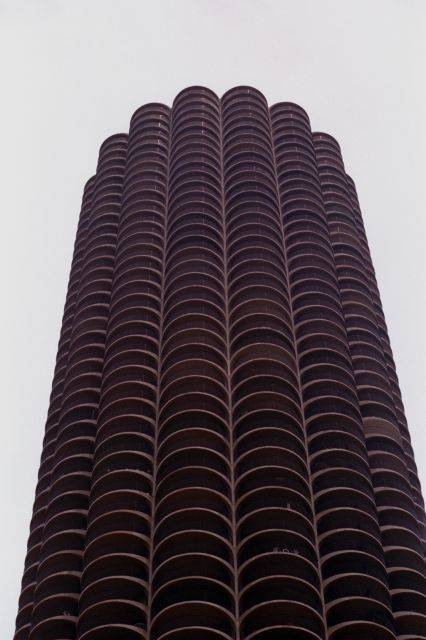

Consider life in a virtual panoptical prison along the curves of Bentham's prison-reform concept.
Bentham's reformed prison was a several-story roundhouse of cells surrounding a central inspection station. Each cell had a speaking tube and a crude toilet. The prisoners had an incentive to behave because an inspector at the center might be watching them at any given moment. Furthermore, cellmates were motivated to keep an eye on each other since they all might be punished for the misbehavior of any one of them.
Several round prisons were built according to Bentham's inspection principle. He got the idea when visiting a settlement in White Russia designed according to the inspection principle in the autumn of 1798 by his brother Samuel Bentham.
Most of us live outside of the concrete prison walls. The presence of brick-and-mortar prisons distracts us from the fact that we live in a virtual prison and are unwittingly projecting its utopian form onto the future, not understanding that such a place would be if realized a dystopia, a locked-down Totalitaria.
Liberal individuals with their material concerns rarely notice they are becoming cellular subjects of a uniformly implanted conscience, or self-inspecting robots of the Grand Central Distributed Inspection System.
Of course there exists a wide variety of goods which people can easily get to outside of the personal prison walls - plenty of garbage, trash and junk for individuals to preoccupy themselves with - yet within each body each prisoner is equally imprisoned, wears almost the same mental uniform, reclines on the same sheer bunk, and believes progress is a flushing toilet named after Thomas Crapper. Indeed, we have a post-modern albeit more abstract version of the Panopticon in place, right down to the flushing toilets. When someone is upset, he takes a dump and his faith is restored.
Who needs an inspector outside when uniformed superegos trained by Superego are inspecting and censoring even our dreams?
Bentham believed in the utility of the inspection principle as an educational tool for building a happy society whose schools are political churches. He fancied an inspection roundhouse that would serve as an experimental "elaboratory" to which children would be consigned at birth to discover what makes them tick and how they might best be conditioned by the laws of psychological association to be the greatest source of utility to themselves and thus to others. Bentham would no doubt be delighted to by our ingenious nosology: we now have 42 kinds of SED (seriously emotionally disturbed) children instead of the old JD (juvenile deliquent), and we have over 100 brands of drugs to treat them with to keep them obedient in school. And there the pedantic tool is employed to command and control society as if it were a self-manufacturing machine.
In response to the observation that the panoptical system might turn individuals into a machines, Bentham said that does not really matter as long as the machines are happy. But as we can see, they are not very happy, as is obvious from the inferior's yearning for equality and from his want of respect for hard-won superiority. He has not done enough time yet - the panoptical prison is designed to eventually rehabilitate man, freeing him from his anti-social nature so he can be equal. Note that inferiors are most enthusiastic about liberty and equality when confronted by their wardens and guards - they tend to write long libertarian manifestos in prison.
When the prisoner is fully rehabilitated and reformed, he is his own warden, and, working in mutual inspection teams, everyone else's inspector. He just loves to drop into community forums during his leisure hours and criticize his would-be superiors, hypocritically feigning humility to say something arrogant about their arrogance, and recommending equality to them, thereby "helping" everyone that they may all have their heads ground down to a point just like his own so that he may be flattered by his own pinheadedness. Forgive him, Pin, for he knows not why he grinds: he is only doing his job as a panoptical machinist.
A few incorrible prisoners are not deceived: they see the inspector's humility as the epitome of false pride; they wind up in the Hole, where they go insane in the dark with nary an inspector around. But never mind the exceptions, for we are socially scientific now. Therefore not to worry, for panoptical prison technology will soon solve everything.
by David Arthur Walters
Honolulu 2000